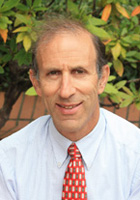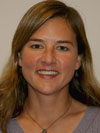A new University of Washington initiative is thinking “upstream” when it comes to creating safer, healthier and more livable cities.
Urban@UW aims to bring together UW faculty, staff and students from different disciplines with city decision-makers and citizens to wrestle with urban issues such as housing and poverty, growth and transportation, and food and economic disparity. The program is funded by the UW Office of Research.

Organizers held a recent kick-off event to brainstorm possible pilot research projects that would be funded by Urban@UW. Faculty members from the Schools of Public Health and Social Work were among the more than 150 people who took part.
More than half of the world’s population now lives in cities, noted one of the participants, Andrew Dannenberg, an affiliate professor of Environmental and Occupational Health Sciences within the School of Public Health.
“It is important for SPH to participate in Urban@UW because the health and quality of life of people in urban settings is central to the future well-being and sustainability of those places,” said Dannenberg, who also holds an affiliation in Urban Design and Planning in the College of Built Environments.

Dannenberg said he hopes the conversations facilitated by Urban@UW will lead to new collaborations across campus between SPH faculty and students and their colleagues in other fields such as architecture, urban planning, engineering, public policy, law, geography, computer science, education, and environmental sciences.
Jennifer Otten, assistant professor of Health Services, and former Seattle City Council member Richard Conlin co-facilitated one of the breakout discussions, “How can we address upstream forces that continue to lead to inequitable access to affordable food?”
The discussion included voices from the UW’s eScience Institute and the UW Department of Mechanical Engineering.
“We looked at how these issues were tied to income, transportation, zoning and other factors, and what kind of data is missing,” Otten said. “We’re excited to meet friends across campus and collaborate in ways to improve health and well-being in the urban environment.”
Also taking part in the Urban@UW brainstorming sessions were Associate Professor William Daniell (Environmental and Occupational Health Sciences) and Acting Assistant Professor Anjum Hajat (Epidemiology).
Joining UW faculty, staff and students were 25 people from other organizations, including King County, Puget Sound Regional Council, Microsoft, Pacific Northwest National Labs and the Seattle Foundation. Mayor Ed Murray and UW President Ana Marie Cauce kicked off the event to publicly launch the MetroLab partnership, which will focus on topics such as infrastructure, increased civic participation and data-driven policymaking.
Urban@UW will select two topics from the brainstorming session and award a small amount of funding to cover a pilot project or a series of seminars. “We want projects to be driven by the needs of the community and the capacities of our researchers and teachers,” said Jen Davison, program manager.
Urban@UW is based in UW’s Startup Hall, and works with CoMotion, the UW’s innovation incubator, and the eScience Institute. Organizers say more and more faculty want to be engaged in solving problems in their own backyard. They hope Urban@UW can serve as a future resource for cities across the world.
